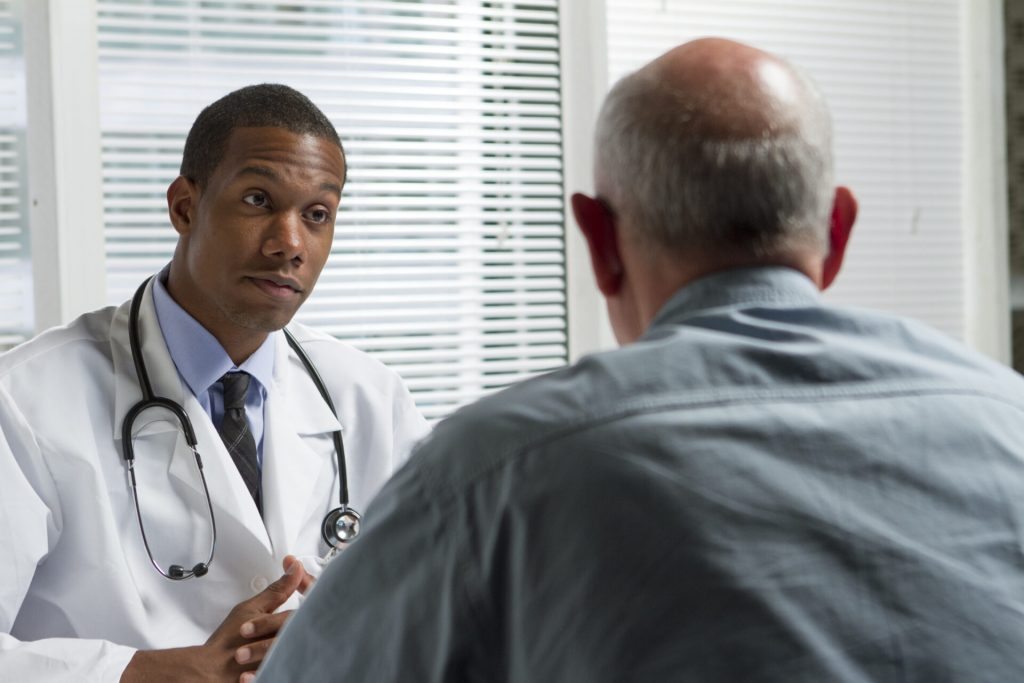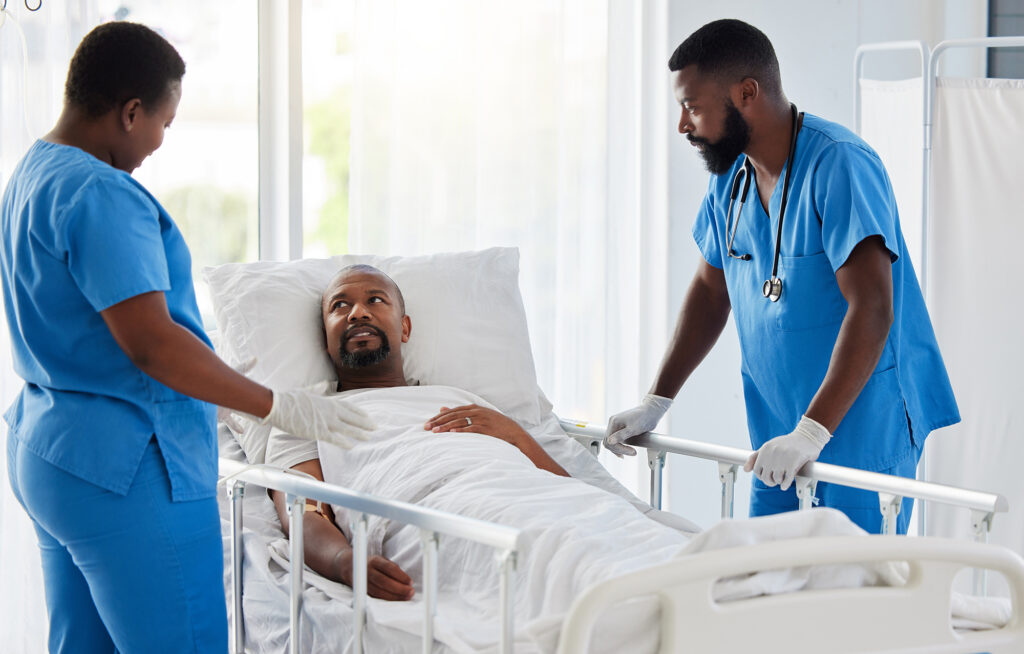September is Prostate Cancer Awareness Month and prostate cancer has a number of known risk factors, one of which includes having a family history of prostate cancer. Hereditary and familial prostate cancer are less common than prostate cancer not associated with a family history. Because of that, many people believe that this background should not play a role when speaking to a healthcare professional. That belief is incorrect.
Having a first-degree relative with prostate cancer can increase a man’s risk of developing the disease himself. These are some of the questions you can ask your doctor if your family has a history of prostate cancer, depending on the stage you are in as it relates to the disease.
Questions to Ask About Prostate Cancer Risk and Screening
1. What type of prostate cancer screening schedule do you recommend for me, based on my individual medical profile and family history?
2. What are the risks and benefits of the prostate-specific antigen (PSA) test?
3. Are there any changes I can make to my diet that can help lower my risk of prostate cancer?
Questions to Ask After Getting a Diagnosis

4. What type of prostate cancer do I have?
5. How aggressive is the cancer?
6. Can you explain my pathology report (laboratory test results) to me?
7. What stage is the prostate cancer? What does this mean?
8. What is the Gleason score of the prostate cancer? What does this mean?
Questions to Ask About Choosing a Treatment and Managing Side Effects
9. How much experience do you have treating this type of cancer?
10. What are my treatment options?
11. What clinical trials are available for me? Where are they located, and how do I find out more about them?
12. Does this prostate cancer need to be treated? What would happen if I choose not to start treatment now?
13. What treatment plan do you recommend? Why?
14. What is the goal of each treatment? Is it to eliminate the cancer, help me feel better, or both?
15. What are the possible side effects of each treatment, both in the short term and the long term?
16. How will treatment affect my emotional well-being?
17. Who will be part of my healthcare team, and what does each member do?
18. Who will be leading my overall treatment?
19. How will this treatment affect my daily life? Will I be able to work, exercise, and perform my usual activities?
20. Will I have difficulty controlling my bladder or bowel function after treatment?
21. Could this treatment affect my sex life? If so, how and for how long?
22. Could this treatment affect my ability to have children? If so, should I talk with a fertility specialist before cancer treatment begins? Should I consider sperm banking?
23. If I’m worried about managing the costs of cancer care, who can help me?
24. What support services are available to me? To my family?
25. If I have questions or problems, who should I call?
Questions to Ask About Having Surgery
26. What type of surgery will I have? Will lymph nodes be removed?
27. How long will the operation take?
28. How long will I be in the hospital?
29. Can you describe what my recovery from surgery will be like?
30. Who should I contact about any side effects I experience? And how soon?
31. What are the possible long-term effects of having this surgery?
Questions to Ask About Having Radiation Therapy
32. What type of treatment is recommended?
33. Where will the radiation be focused?
34. What is the goal of this treatment?
35. How long will it take to give this treatment?
36. What side effects can I expect during treatment?
37. Who should I contact about any side effects I experience? And how soon?
38. What are the possible long-term or late effects of having this treatment?
39. What can be done to prevent or relieve the side effects?
Questions to Ask About Having Hormonal Therapy
40. What type of hormonal therapy do you recommend?
41. What is the goal of this treatment?
42. Will I receive this treatment at a hospital or clinic? Or will I take it at home?
43. How long will I need to continue this treatment?
44. What side effects can I expect during treatment?
45. Who should I contact about any side effects I experience? And how soon?
46. What can be done to prevent or relieve the side effects?
Questions to Ask About Planning Follow-Up Care
47. What is the chance that the cancer will come back? Should I watch for specific signs or symptoms?
48. What long-term side effects or late effects are possible based on the cancer treatment I received?
49. What follow-up tests will I need, and how often will those tests be needed?
50. How do I get a treatment summary and survivorship care plan to keep in my personal records?
In addition to these questions, consider asking your doctor about recovery time if you plan to work or resume your usual activities. If you have concerns about fertility or impotence, inquire about those topics as well.
Remember that doctors aren’t the only ones who can provide information. Other healthcare professionals, such as nurses and social workers, can also help answer your questions. Open and honest discussions with your cancer care team are crucial to making informed decisions about your health. Your family history of prostate cancer may increase your risk, but proactive measures and knowledge can help you navigate this journey.








